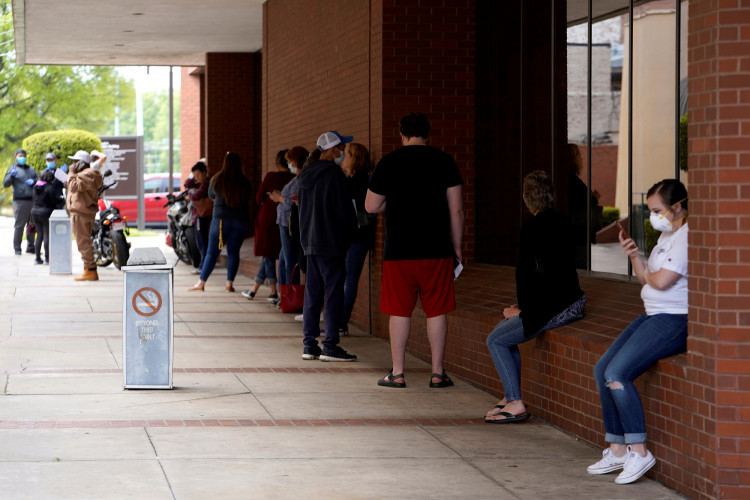Only the much delayed fourth coronavirus stimulus package will save the struggling United States' economy from a double-dip recession this year, contends Dennis Lockhart, a former member of the U.S. Federal Reserve as president of the Atlanta Fed from 2007 to 2017.
The U.S. was officially declared in an economic recession on June 8 by the non-profit research organization, the National Bureau of Economic Research (NBER), which provides start and end dates for U.S. recessions.
In making the determination, NBER said the historic magnitude of the plunge in employment and production and its broad extent , "warrants the designation of this episode as a recession," even if it turns out to be shorter than earlier ones.
Lockhart argues that if the Trump administration fails to control the raging COVID-19 pandemic, and this failure results in further economic decline, a second recession could be in the cards.
This second recession will be a double-dip recession or a "W-shaped recovery." This type is a recession followed by a short-lived recovery, followed by another recession. A reliable indicator of a double-dip recession is GDP falling back to negative after a few quarters of positive growth.
If there's ever going to be an effective effort to really ward-off a worst-case scenario, especially for the most vulnerable segments of the American public, "then it's going to come from the fiscal side," according to Lockhart.
By fiscal side, Lockhart is referring to the fourth coronavirus stimulus package the Democratic Party and the Republican Party haven't been able to agree on since May. There are currently two competing packages: the Democrats' $3 trillion HEROES Act and the Republican's $1 trillion HEALS Act.
Specifically, fiscal-policy measures include mailing out stimulus checks to households and cutting taxes. Lockhart strongly argues these fiscal-policy measures could be the only way to prevent a second recession this year.
Democrats and Republicans remain at loggerheads over several key provisions in the fourth stimulus package such as the weekly federal unemployment insurance of $600, which Democrats want retained but which Republicans either want abolished or greatly reduced.
Democrats and Republicans have made no importance whatsoever in resolving their differences. In the meantime, the $600 weekly jobless insurance has expired while other fiscal measures provided for in the Democrat's $2 trillion CARES Act are set to expire.
As of last weekend, Democrats are defending their latest proposal they and the Republicans meet half-way in what they propose to spend. House Speaker Nancy Pelosi, a Democrat from California, said there won't further discussions until Republicans agree to a $2.2 trillion stimulus package.
"We have said again and again that we are willing to come down (and) meet them in the middle," said Pelosi. "That would be $2.2 trillion. When they're reading to do that, we'll be ready to discuss and negotiate. I did not get that impression on that call."
In warning against a double-dip, Lockhart cited new statistics showing one million initial jobless claims for the week to August 22. He, also, cited the Department of Commerce report of a record 31.7% annualized GDP decline in the second quarter.






